Whitefoot: A Story from the Center of the World
by Wendell Berry, Davis Te Selle
Ages 8–12
The tiny mouse, Whitefoot, is comfortable in her nest in the woods, which she knows is the center of the world. When a flood carries her far from home, she must use all her skills to survive. David Te Selle’s beautifully detailed realistic drawings highlight Whitefoot’s exploration of a whole new world. |
| 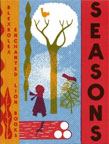 Seasons Seasons
by Blexbolex
Ages 4–up
This stunning picture book explores the cyclical nature of life by examining the seasons. Beautiful prints present simple yet detailed views of landscapes, objects, and people during different times of the year, encouraging readers to notice subtle details. As time passes and the seasons rotate, a sense of the permanence of the cycle of change is revealed. |
| 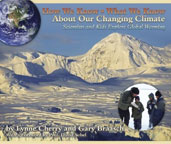 How We Know What We Know About Our Changing Climate: Scientists and Kids Explore Global Warming How We Know What We Know About Our Changing Climate: Scientists and Kids Explore Global Warming
by Lynne Cherry & Gary Braasch
Ages 10–14
Hopeful tone and comprehensive resource list. |
|  Redwoods Redwoods
by Jason Chin
Ages 4–8
A young boy finds a book titled Redwoods on a subway bench and is amazed to find his own picture on the cover. As he reads, he is immersed in the history of the redwoods. When he leaves the train, the boy finds himself in the middle of a redwood forest in California. Beautiful and realistic watercolors accompany the interesting and accurate information. |
|  Farm Farm
by Elisha Cooper
Ages 4–8
This beautifully illustrated book is a tribute to family farms. Beginning in March and ending in November, the quietly poetic text follows a family of four through their daily life, introducing the land, buildings, and animals that fill this family’s modern rural life. |
| 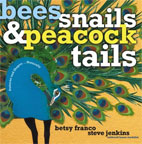 Bees, Snails, & Peacock Tails: Patterns & Shapes… Naturally Bees, Snails, & Peacock Tails: Patterns & Shapes… Naturally
by Betsy Franco, Steve Jenkins
Ages 4–8
This inviting book explores geometry in the natural world. The layout of the rhymes often echoes the shapes pictured in the stunning cut-paper collages. |
| 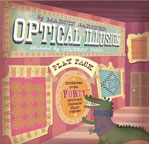 Optical Illusion Play Pack Optical Illusion Play Pack
by Martin Gardner
Ages 10–up
Packaged with 40+ punch-out pieces, readers are challenged to re-create optical illusions, experiencing rather than simply observing these illusions aptly explained by puzzle master and mathematician Gardner. |
| 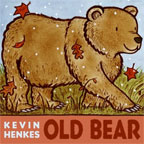 Old Bear Old Bear
by Kevin Henkes
Ages 3–8
A hibernating bear dreams of a spring when he was a cub, followed by dreams of summer, fall, and winter in this beautifully illustrated book about the annual cycle of seasons. | |
| 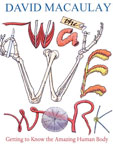 The Way We Work The Way We Work
by David Macaulay
Ages 10–up
This comprehensive and entertaining illustrated guide to the workings of the human body is the result of years of research. Seven sections move from the structure of a cell through the systems of the body. The full color drawings present information in a friendly way, but the language is often highly technical. Motivated teens will love this book. |
| 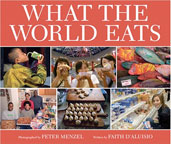 What the World Eats What the World Eats
by Peter Menzel, Faith D’Aluisio
All Ages
Twenty-five families in 21 countries around the world are photographed surrounded by a week’s worth of food. The multi-generational portraits provide an avenue for exploring each family’s hopes and struggles while gently raising issues about global food supplies. Family recipes, maps, and county information reveal provocative statistics. (adapted from Hungry Planet) |
| 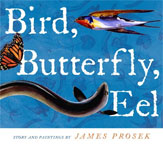 Bird, Butterfly, Eel Bird, Butterfly, Eel
by James Prosek
Ages 6–10
A barn swallow, monarch, and American eel spend their summer at the same coastal farm in New England. In the fall, they migrate to three distant and different places. The beautifully detailed watercolors complement the simple text. |
| 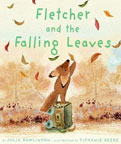 Fletcher and the Falling Leaves Fletcher and the Falling Leaves
by Julia Rawlinson, Tiphanie Beeke
Ages 3–8
The young fox Fletcher is concerned when leaves begin to fall from his favorite tree. His mother assures him that it is only autumn, but to Fletcher the tree does not seem at all well. He tries to capture the leaves and stick them back on, but eventually the twig breaks off. The next day a beautiful sight reassures him that the tree is fine. The beautiful illustrations echo the magical transformation of the seasons. |
| 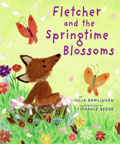 Fletcher and the Springtime Blossoms Fletcher and the Springtime Blossoms
by Julia Rawlinson, Tiphanie Beeke
Ages 3–8
When Fletcher the young fox sees the first spring blossoms flying through the air, he is sure that the snow has returned. At first annoyed by the false alarm, Fletcher’s friends soon join him in romping through the petals. Tiphanie Beeke’s beautiful illustrations celebrate the season and give each animal a distinctive personality. (follows Fletcher and the Falling Leaves) |
| 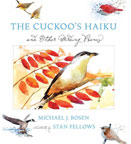 The Cuckoo’s Haiku: The Cuckoo’s Haiku:
and Other Birding Poems
by Michael J. Rosen, Stan Fellows
Ages 6–10
Poet and birder Rosen captures the essence of more than 20 common North American birds. Designed like a birding notebook, each haiku is accompanied by Fellows’s beautiful watercolors of the birds in their habitats plus notes about their behavior and traits. |
| 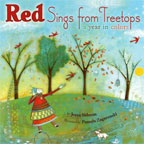 Red Sings from Treetops: A Year in Colors Red Sings from Treetops: A Year in Colors
by Joyce Sidman, Pamela Zagarenski
Ages 4–8
Stylized figures move through colorful illustrations celebrating the four seasons. The unrhymed poems are filled with imaginative uses of color words to highlight each season. (2010 Caldecott Honor Book) |
| 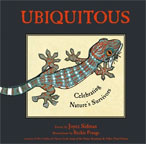 Ubiquitous: Celebrating Nature’s Survivors Ubiquitous: Celebrating Nature’s Survivors
by Joyce Sidman, Beckie Prange
Ages 6–10
This book of poems pays tribute to biologically successful life forms from lichens to mollusks to ants to coyotes. Arranged in order of each survivor’s first appearance, each spread features fascinating facts, beautifully colored linocuts, and a poem which echoes a trait of the subject. The melding of art, science, and poetry stimulates the eye, ear, and mind. |
|  A Tree Is Nice A Tree Is Nice
text by Janice Udry, illustrations by Marc Simont
Caldecott Medal 1957
Ages 4–8
This book explores all the benefits that trees bring us in simple text suitable for young readers. The elongated shape of the book allows the beautiful illustrations to capture the graceful height of trees. |
| 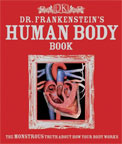 Dr. Frankenstein’s Human Body Book Dr. Frankenstein’s Human Body Book
by Richard Walker
Ages 10–up
Dr. Frankenstein invites readers to join him as he creates a human being. From atoms and the skeleton to tissues and muscles, this anatomy book is as fascinating as science fiction. Gothic fonts and illustrations blend with state of the art images from gamma scans and other advanced technology. |
|
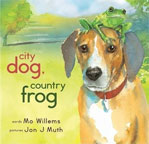 City Dog, Country Frog
City Dog, Country Frog

















 Previous Article
Previous Article
